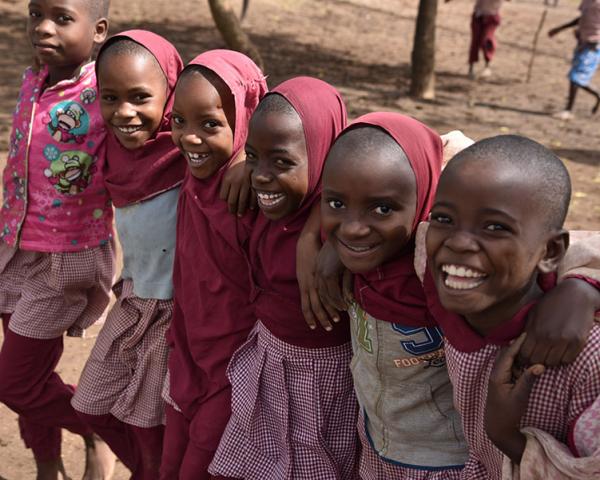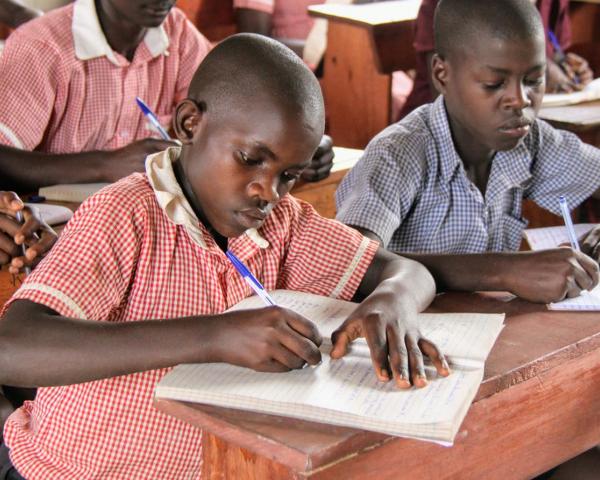Learning for Longer
In the remote, arid region of northern Ethiopia lies Adishumhafti, a community where not a single child had ever completed primary school. Until now.
Tekleuleyni, who is 15 years old, and his 34 other classmates, are the first children in their village to sit a class 8 national examination – a result of projects run by imagine1day, in partnership with Educate A Child, a programme of the Education Above All Foundation, to tackle the problem of out of school children in Ethiopia.
Through teacher training, community mobilisation and the construction of new classrooms, imagine1day equipped the school with the facilities to extend learning from class 6 to class 8. “I am very happy that this school was built,” says Tekleuleyni. “If it were not, I would not have been able to finish my primary education. The nearest class 8 school was far away from my house – four hours’ walk one way. It is too long, I would have spent the whole day walking.”
Leadership training is also provided for community members to develop strategies to promote education and address cultural barriers that inhibit many children from going to school.
Parent-Teacher Association Chairman Andu Weldemihret says that through this work, the local community united to ensure that their children would receive a full course of primary education. Local leaders helped fundraise for education supplies, labourers hand-dug a 7km road to allow machinery and building equipment to be delivered, while teachers volunteered their spare time to provide additional tutorials.
“Before the classrooms were open-air, there was dust, there were bugs and the students picked up diseases,” explains Weldemihret. “Today, the students have none of these problems and the community is committed to the idea that every child should go to school.”
The school in Adishumhafti is one of hundreds that imagine1day and Educate A Child have refurbished. In fact, more than 68,000 children are now enrolled as a result of their projects.
Adishumhafti’s class 8 students are awaiting their exam results with high hopes. Tekleuleyni set a goal of 86 out of 100 for his exams (a passing mark is 50). He never expected to get this far. “Today, I want to study more to become an engineer, a teacher or a doctor,” he says. “I have so many possibilities now, thanks to education.”
















